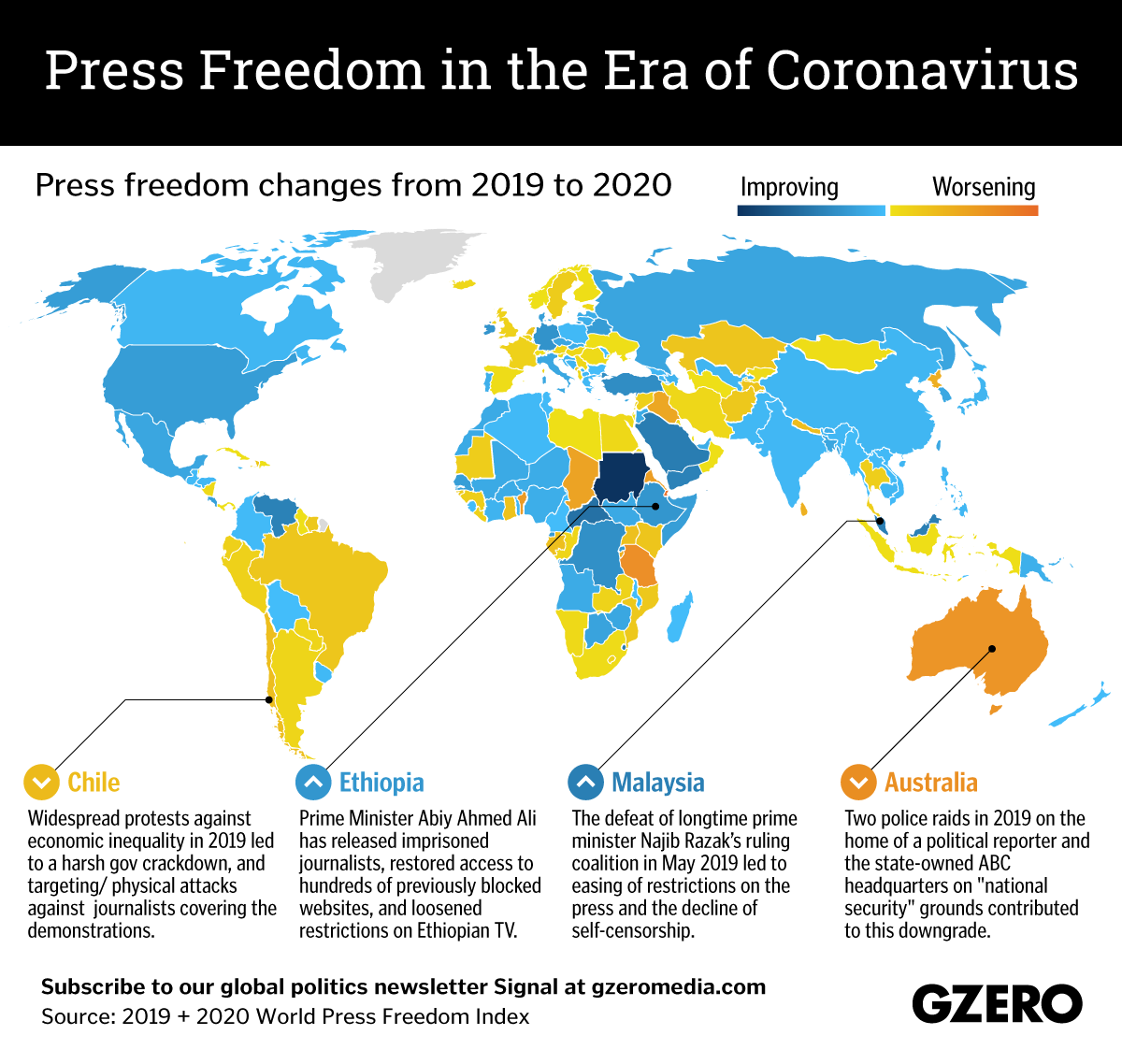The Graphic Truth: Press freedom in the era of coronavirus
April 22, 2020
During a pandemic, the work of reporters around the world is particularly important, to ensure transparency about the scope of outbreaks and the measures that governments are taking to contain them. But in many countries, press freedom has been declining in recent years. And some governments have even cracked down on the press since the coronavirus pandemic began. To track press freedom globally, Reporters Without Borders publishes a yearly World Press Freedom Index, that takes a microscope to every country, ranking the ability of its media to report freely and independently. The 2020 Index was released this week. Here's a look at how countries' scores have changed over the past year.
